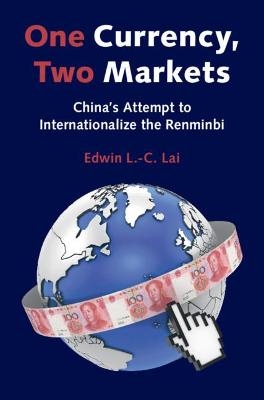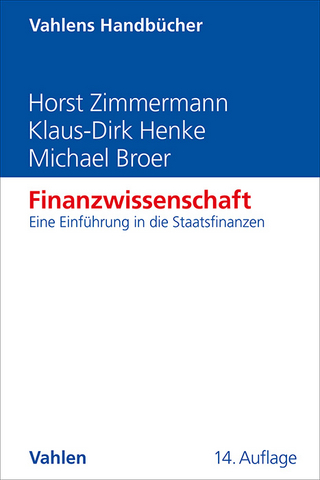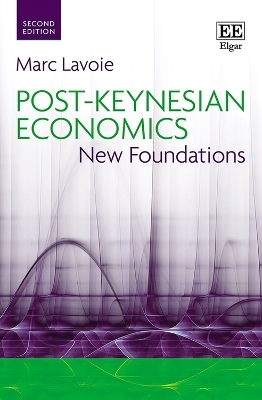
One Currency, Two Markets
China's Attempt to Internationalize the Renminbi
Seiten
2021
Cambridge University Press (Verlag)
978-1-108-49168-6 (ISBN)
Cambridge University Press (Verlag)
978-1-108-49168-6 (ISBN)
Written for readers interested in the economic analysis into the future of the USD, and the rising importance of the RMB. It points out the unsustainability of the dollar standard in the long run, that China has unique incentives to internationalize its currency, and how Hong Kong plays an important role.
This book is for anyone who is interested in the economic analysis of the future of the international monetary system and the USD, and the rising importance of the RMB. It points out the unsustainability of the dollar standard in the long run, that China has unique incentives to internationalize its currency, and how Hong Kong plays an important role. It explains the real reasons for China to internationalize its currency, including using external commitments to force financial sector reforms ('daobi' in Chinese). It applies economic theories accessible to laymen to establish that financial development and openness are crucial for RMB internationalization to succeed, and that greater exchange rate volatility is inevitable due to the 'open-economy trilemma'. Employing the 'gravity model', the book predicts quantitatively that the RMB is likely to be a distant third payment currency after the USD and the euro, but surpassing the Japanese yen in the next decade.
This book is for anyone who is interested in the economic analysis of the future of the international monetary system and the USD, and the rising importance of the RMB. It points out the unsustainability of the dollar standard in the long run, that China has unique incentives to internationalize its currency, and how Hong Kong plays an important role. It explains the real reasons for China to internationalize its currency, including using external commitments to force financial sector reforms ('daobi' in Chinese). It applies economic theories accessible to laymen to establish that financial development and openness are crucial for RMB internationalization to succeed, and that greater exchange rate volatility is inevitable due to the 'open-economy trilemma'. Employing the 'gravity model', the book predicts quantitatively that the RMB is likely to be a distant third payment currency after the USD and the euro, but surpassing the Japanese yen in the next decade.
Edwin L. -C. Lai is Professor of Economics at HKUST. He has been Senior Research Economist and Adviser at the Federal Reserve Bank of Dallas, a consultant with the World Bank and a visiting fellow with Princeton University. He is an associate editor of Review of International Economics and has published in many top economics journals.
1. Introduction; 2. China's aversion to a floating exchange rate; 3. Why does China want to internationalize the RMB?; 4. China's strategy of internationalizing the RMB; 5. The importance of capital account liberalization; 6. The importance of financial sector reform; 7. The importance of the offshore RMB market; 8. The potential of the RMB as a payment currency; 9. The prospects of RMB internationalization.
| Erscheinungsdatum | 02.08.2021 |
|---|---|
| Zusatzinfo | Worked examples or Exercises |
| Verlagsort | Cambridge |
| Sprache | englisch |
| Maße | 159 x 235 mm |
| Gewicht | 650 g |
| Themenwelt | Wirtschaft ► Volkswirtschaftslehre ► Finanzwissenschaft |
| Wirtschaft ► Volkswirtschaftslehre ► Makroökonomie | |
| ISBN-10 | 1-108-49168-5 / 1108491685 |
| ISBN-13 | 978-1-108-49168-6 / 9781108491686 |
| Zustand | Neuware |
| Haben Sie eine Frage zum Produkt? |
Mehr entdecken
aus dem Bereich
aus dem Bereich
eine Einführung in die Staatsfinanzen
Buch | Hardcover (2024)
Vahlen (Verlag)
39,80 €
New Foundations
Buch | Softcover (2022)
Edward Elgar Publishing Ltd (Verlag)
64,75 €
and why it doesn't work the way we think it does
Buch | Softcover (2023)
Pan Books (Verlag)
13,70 €


